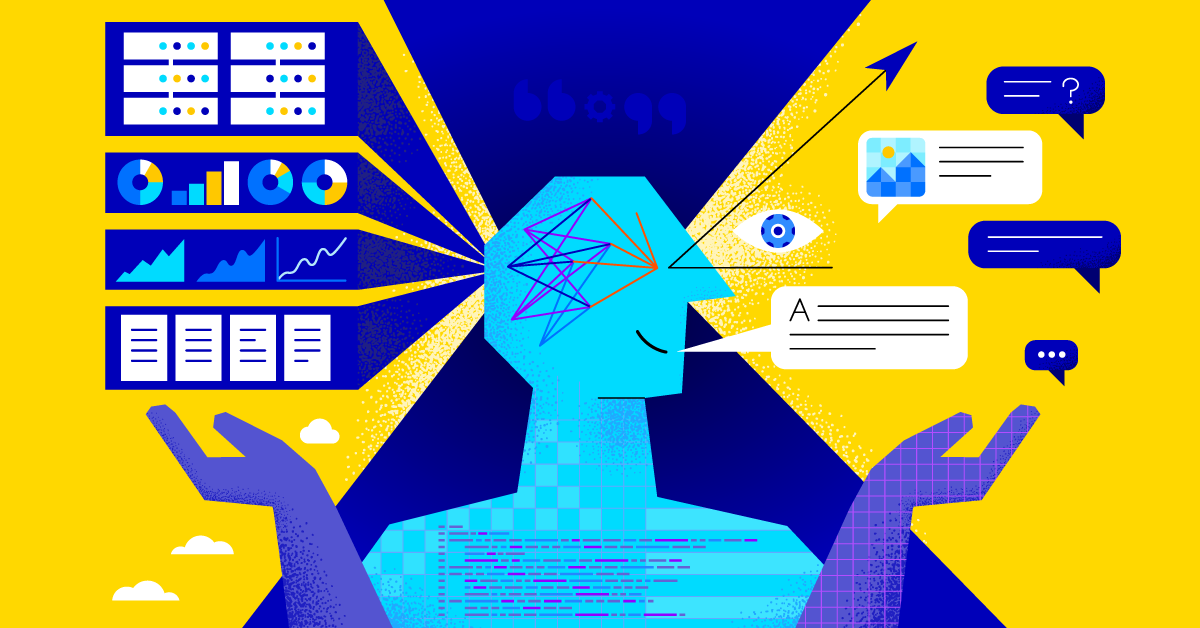AI Agents: The 3rd Wave of AI?
Former Analyst

If 2023 was the year of generative AI, 2024 is shaping up to be the year of AI agents. Microsoft, Google, Oracle, Workday, HubSpot, Salesforce (as previously covered), and more have launched AI agent products into the market. Even more will follow their lead. But what exactly are AI agents, why is there so much attention on them, and what are the implications of this trend for higher education and the future of AI?
What is an AI agent?
There is no universally agreed-upon definition of an AI agent, but there are two key requirements we consider necessary for a software system to be considered an AI agent:
- The system is autonomous. It takes actions independent of human input.
- The system can plan out its actions. A human need not specify each granular step it will perform.
Additionally, many AI agent systems are increasingly proactive in their design. While most AI systems in the past were designed to react to human input and assist, AI agents’ heightened autonomy and decision-making capabilities allow them to complete higher-level tasks more proactively.
Some examples of use cases for AI agents in higher education include:
- Enabling self-service support by accessing and updating information from integrated student information and customer relationship management systems to respond to student and staff inquiries.
- Autonomously calling prospective students.
- Driving marketing campaigns to boost engagement with prospective students, alumni, and donors.
What technology underpins AI agents?
Generative AI, powered by large language models (LLMs) and multi-modal foundation models, forms the core of AI agents to enable their general-purpose knowledge and strong reasoning capabilities. However, two important recent developments have further enhanced today’s AI agent products:
- Retrieval-augmented generation (RAG) is a technique employed with generative AI that empowers the model with a domain-specific knowledge base. Before returning a response to the user, the system performs a search against a database and adds relevant information into the model’s prompt. Importantly, the success of the RAG design has eliminated the need for expensive fine-tuning of general-purpose LLMs that otherwise would be necessary for an AI agent to learn a context-specific underlying knowledge base.
- Function calling, also known as tool use, enables an LLM to run code, such as APIs, within an integrated system. At a high level, function calling grants a model the ability to decide to take certain actions in other software systems. Today’s modern models have been highly refined to accurately use function calling to help fulfill users’ requests.
Recent advances in AI research have also fueled the rise of AI agents. For example, OpenAI’s most recent model release, o1-preview, promises “a new level of AI capability” for complex reasoning. Additional progress in performance, including lowering the latency required for AI agents to perform multiple intermediate tasks in near real-time, has allowed AI agents to grab the spotlight as companies seek to productize generative AI.
What does this mean for higher education?
Institutions should recognize the potential of AI agents. Broadly, vendors hope AI agent products will unlock productivity and efficiency in the workforce. For higher education, AI agents could be a means to leverage technology to meet student needs despite financial challenges and workforce constraints. The current AI agent products are unlikely to replace any jobs in full; rather, vendors are positioning their products to enhance human work and automate simple, tedious processes to free up humans for more strategic and fulfilling tasks. Further, vendors are designing AI agent products to enable a wide audience of potential customers, including non-technical users, to take full advantage of the products through no-code and even natural language designer tools. Higher education institutions, which often do not have extensive technical teams to deploy and manage software products, may benefit greatly from this AI-as-a-service product strategy.
At the same time, institutions should be wary of AI agents. For higher education, security and regulatory concerns are paramount. AI agent systems are very new to the market, and many of the ethical challenges are still being uncovered by beta testers and early adopters. With any automated system concerns of mistreatment and bias must be top of mind. This is especially true when the automated system is an AI agent powered by generative AI. While the built-in guardrails for generative AI provided by vendors have advanced significantly in recent years, the technology is still fundamentally different than other software: it is inherently non-deterministic. This can easily result in situations where the designer’s intent does not fully align with the AI agent’s behavior. The fact that the products are still in their early stages also implies that monitoring tools may not be fully developed enough to effectively track and prevent misuse, whether intentional or unintentional.
The future of AI
Many are speculating on the potential impact of agents, calling this trend “the third wave of AI,” with the first wave being predictive and the second generative. Yet few without financial motive to amplify their customers’ hype in AI products are relating the trend of AI agents to the explosion of interest in generative AI. The paradigm shift from predictive to generative AI was unlocked through new algorithmic approaches borne out of AI research and accelerated by smart product development and marketing. This contrasts with the “jump” from generative AI to AI agents, which lack the same leaps in algorithmic approach. This is to say — generative AI is the cornerstone of today’s AI agent design, and so it seems hard to claim we are truly moving beyond generative AI into a new wave of AI.
This is not to say the economic and cultural impacts of AI agents won’t be massive. In fact, in the near future, we predict AI agents will transform everyday human-computer interactions. AI agents seem to be on the brink of fulfilling the longstanding promise of AI research: enabling humans to pass off high-level tasks requiring decision-making, long-term planning, and reasoning — key functions of human intelligence — to a computer system. If AI agent vendors can deliver their promising, extensive product roadmaps, they may very well fulfill this promise.
Apple’s enhancements to Siri as part of Apple Intelligence may be the first massive-scale rollout of an AI agent system that jumpstarts this transformation. As AI agents proliferate in the market, their multi-step reasoning and proactive capabilities will establish a new normal for how humans interact with digital systems. Consequently, end-user expectations for autonomous computer systems will continue to increase.
Final thoughts
Balancing a cautious optimism toward AI agents can be difficult. At the Tambellini Group, we advise institutions based on their unique needs and our many decades of higher education expertise. Our unbiased approach to market research gives institutions the confidence to make informed decisions toward their goals and achieve a modern Future Campus that best serves students. Contact us for support with your institution’s AI strategy.
Categories
Share Article:

Other Posts From this Author:
© Copyright 2025, The Tambellini Group. All Rights Reserved.